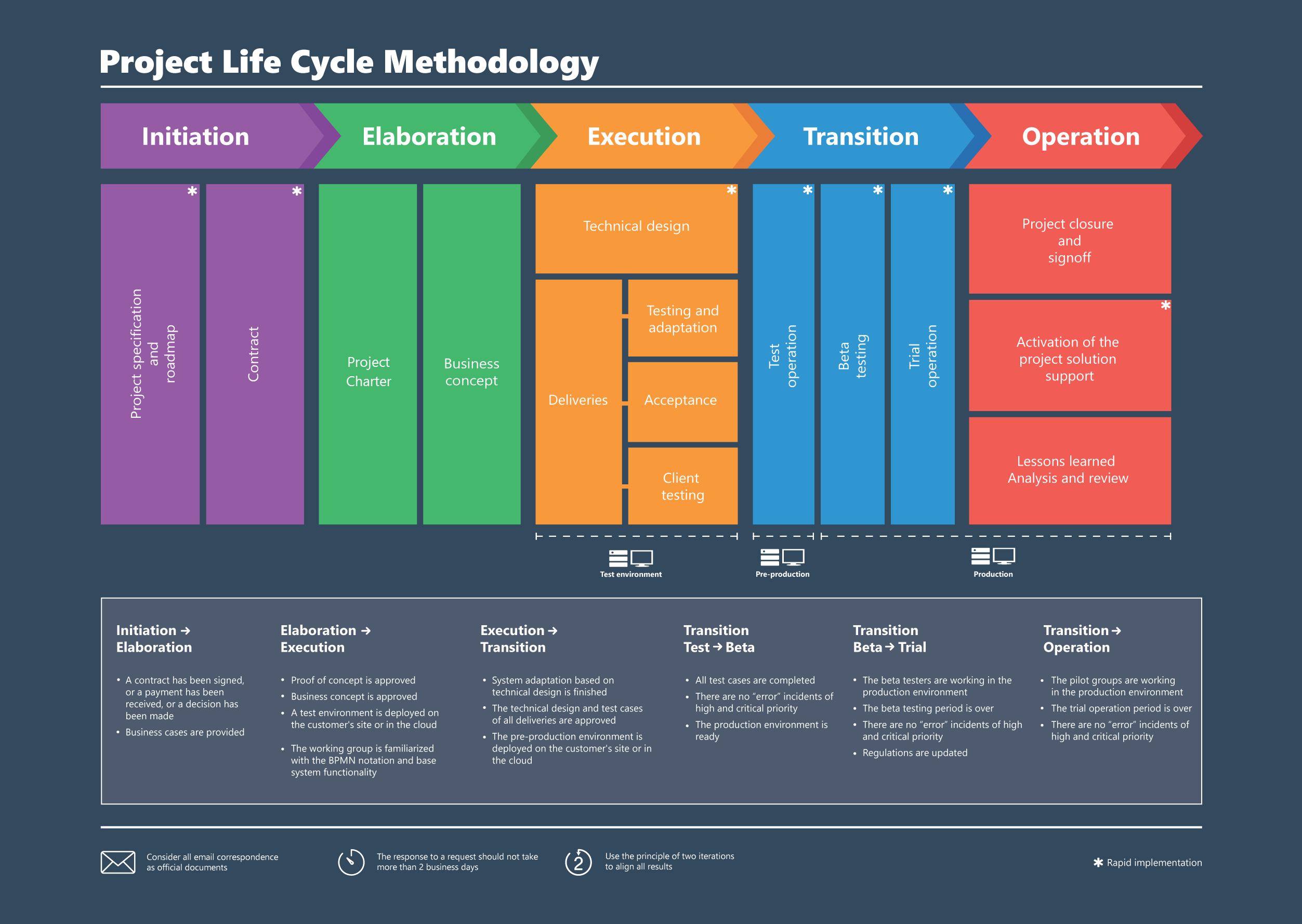Project Life Cycle Methodology
This document is a guide on organizing Creatio implementation projects using best project management practices to assist you through all phases of Creatio implementation.
Our project life cycle is based on the PRINCE2 methodology. It enables you to simplify, plan, develop and implement Creatio to meet the project quality requirements and deadlines.
Attention
This guide will be useful both for partners implementing Creatio and for their clients (“external implementation”), in addition to clients who decided to implement Creatio independently utilizing internal resources (“independent implementation”). This guide covers both these options.
Fig. 1 Project life cycle methodology (click to open full-sized image)
Note
The “Agreement” stage is omitted in the independent implementation.
Project team structure
Implementation projects involve large numbers of participants. The project team is a group of Client’s and Vendor’s representatives divided into several levels.
When it comes to the independent implementation, the term “Client” refers to an internal department that will use Creatio, and the term “Vendor” denotes a project or IT department that implements and supports Creatio.
Project Regulations
Regulations are a set of mutually agreed rules that ensure the quality and timeliness of interaction between team members and guarantee that all project deadlines are met.
Initiation phase
At the Initiation phase, preparation and high-level planning are carried out to lay down the foundation for a successful project.
•Planning and Project proposal
Elaboration phase
At the Elaboration phase, the Project charter, and the project’s Business concept, documents, as well as a detailed project plan are prepared.
Execution phase
At the Execution phase, the development is performed. For this, continuous delivery of test prototypes is carried out. The update packages with changes are delivered to the Client.
•Business processes of the Execution phase
Transition phase
At the Transition phase, deliveries are transferred from the Vendor’s test environment to the Client’s pre-production and production environments.
•Business processes of the Transition phase
Operation phase
Operation is the final phase, making the official project wrap-up. Project results are summarized and documented.







